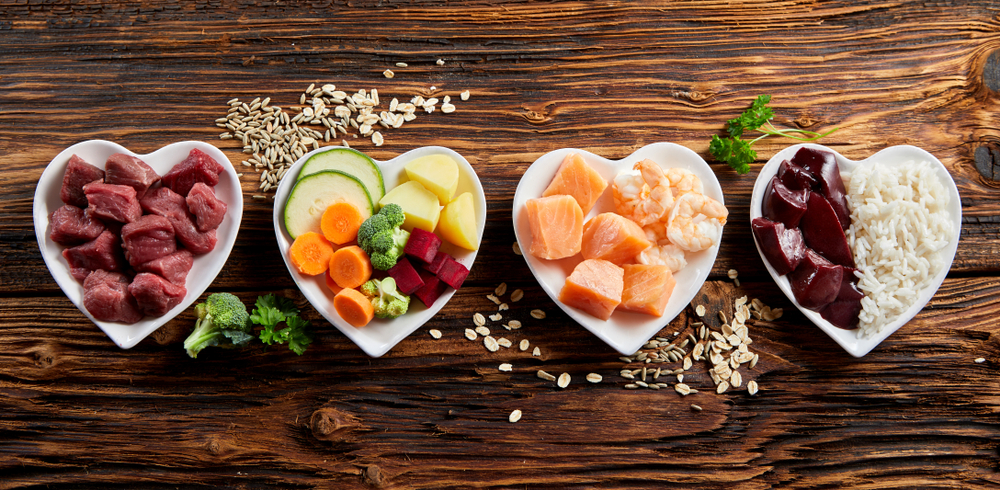
Nutrition Matters: Crafting a Balanced Diet for Your Pet
When it comes to our pets’ health, a balanced diet is one of the most essential aspects of care. A well-nourished pet not only looks vibrant with a shiny coat and bright eyes, but they also enjoy higher energy levels, stronger immunity, and an improved quality of life. At The Pets Place Animal Hospital, we understand the importance of nutrition and are here to help you craft a diet that ensures your pet stays healthy and happy.
Why a Balanced Diet is Essential for Pets
Just like humans, pets require a mix of proteins, fats, carbohydrates, vitamins, and minerals for optimal health. The specific proportions, however, vary widely based on species, age, size, and even individual health needs. Feeding your pet a balanced diet supports their digestive health, aids in the prevention of chronic diseases, and promotes a robust immune system.
Proteins
Proteins are the building blocks of muscles and tissues, essential for growth and repair. Dogs and cats are naturally carnivorous, and their diets should include high-quality protein sources like chicken, turkey, or fish. Be mindful of using balanced protein sources to avoid placing strain on organs like the kidneys.
Fats
Fats provide a concentrated source of energy and help maintain a shiny coat and healthy skin. Omega-3 and Omega-6 fatty acids are especially beneficial for heart health, brain development, and joint support.
Carbohydrates
Carbohydrates offer energy and support digestive health. Complex carbs such as sweet potatoes, brown rice, and oatmeal are beneficial for pets, though the amount should be carefully balanced as pets don’t need as many carbohydrates as humans do.
Vitamins and Minerals
Vitamins like A, D, E, and essential minerals such as calcium and phosphorus play a critical role in bone health, immune function, and overall wellness. A well-balanced pet food will have these vitamins and minerals in the right proportions.
Water
Hydration is critical to every body function, from digestion to temperature regulation. Always provide fresh, clean water for your pet and encourage regular drinking, especially if they primarily eat dry kibble.
Choosing the Right Diet: Commercial vs. Homemade
When deciding on a diet, pet owners often weigh the pros and cons of commercial foods versus homemade meals.
• Commercial Pet Foods: Many high-quality commercial pet foods are specially formulated to meet your pet’s nutritional needs. Look for brands with whole ingredients, limited fillers, and certifications from reputable organizations.
• Homemade Diets: Homemade diets allow you to control exactly what goes into your pet’s food, but they require careful planning to ensure balance. Consult with a veterinarian to help you create a recipe that meets all your pet’s nutritional needs.
Tailoring the Diet to Your Pet's Unique Needs
Every pet is unique, and a diet that works for one may not be suitable for another. Factors to consider include:
• Age: Puppies and kittens require diets with higher protein and calorie content, while senior pets benefit from foods designed to support joint health and maintain a healthy weight.
• Size and Breed: Larger breeds may need diets that support joint health, while smaller breeds often benefit from calorie-dense, small-kibble options.
• Health Conditions: Pets with allergies, diabetes, kidney issues, or obesity will benefit from specially formulated diets. Always consult with your vet for guidance on managing any health conditions through diet.
Tips for Feeding Your Pet
• Stick to a Routine: Pets thrive on routine, so try to feed them at the same times each day.
• Measure Portions: Overfeeding is a common issue that can lead to obesity and health problems. Follow feeding guidelines on pet food packaging and adjust based on your pet’s activity level and body condition.
• Introduce New Foods Gradually: If you’re transitioning to a new food, do it gradually over a week to avoid upsetting your pet’s stomach.
• Avoid Table Scraps: Many human foods are unhealthy or toxic to pets. Stick to high-quality pet foods and treats specifically formulated for their needs.
Partner with The Pets Place Animal Hospital for Nutritional Guidance
At The Pets Place Animal Hospital, we’re here to support you in giving your pet the best possible nutrition. If you’re unsure about your pet’s diet or considering a change, we can help you assess their needs and guide you toward the best options.
Schedule a consultation with The Pets Place Animal Hospital to create a personalized diet plan for your pet. Visit our office in Riverside, California, or call (951) 684-2181 to book an appointment today.










